The universe is meaningful, then there must be a reason and a cause for conditions that appear chaotic, cruel, or grotesque. Even in such cases, however, at some extent or another the individual can indeed start over — or at least those closest to the person in question can begin to see a larger framework of existence in which even the most dire of physical circumstances are somehow redeemed.
In many cases, it is the parents of such offspring who suffer more than their children, since it seems as if such families were unjustly saddled with the most unfortunate woes.
We hope to explain this larger framework of existence still further, for indeed it also affects the human condition in all of its aspects.
As I have said in previous blogs, the reasons for most physical, mental, spiritual, or emotional problems can be found in this one lifetime, and because of the nature of simultaneous time, new beliefs in the present can also affect those in the past.
In a basic way, it is possible for present beliefs to actually modify the beliefs of a life that is seemingly a past one. I must explain again that all lives are lived at once — but in different kinds of focuses. Our conventional ideas of time make it simpler, however, to speak of one life as happening before or after another.
Again, no one is punished for crimes committed in a past life, and in each life we are unique. The inner intelligence within us that gives us each life also gives us the conditions of each life. It certainly seems to us, or to many of us, that most people would always choose to be born healthy and whole, in an excellent environment, of parents with loving natures and genetic excellence — and in other words to grow up healthy, wealthy, and wise.
Life, however, is far too profound and multitudinous, and requires great depths of emotional response and action that could never be satisfied adequately by any given set of circumstances, however favorable.
The species is filled with a powerful sense of curiosity and wonder, and the need for exploration and discovery, so that even a man born as a king through several lives would find himself bored and determined to seek out a different or opposite experience.
In some lives, then, we are born in fortunate circumstances, and in others we may find an environment of poverty and want. We may be born in excellent health in one life, with a high intelligence and great wit, while in still another existence we may be born ill or crippled or mentally deficient.
It also seems that each fetus must naturally desire to grow, emerge whole from its mother’s womb’s, and develop into a natural childhood and adulthood. However, in those terms just as many fetuses want the experience of being fetuses without following through on other stages. They have no intention of growing into complete human development. In fact, many fetuses explore that element of existence numberless times before deciding to go on still further, and emerge normally from the womb.
Those fetuses that do not develop still contribute to the body’s overall experience, and they feel themselves successful in their own existences. An understanding of these issues can greatly help throw light on the question of early deaths and diseases, and spontaneous abortions.
These are all part of the continuous undercurrents of life, and the same issues apply to many other species whose offspring are lost in very early life.
This is not an uncaring universe or nature operating, but portions of consciousness who choose at whatever levels certain experiences that nourish the living environment, and bring satisfactions that may never show on life’s surface.
In the case of human beings, however, many questions certainly rise to the fore. I do not want to generalize, for each living situation is too unique for that. I do want to point out that all fetuses do not necessarily intend to develop into normal babies, and that if medical science, through its techniques, ends up in directing a normal birth, the consciousness of the child may never feel normally allied with physical experience.
The child may go from one illness to another, or simply display an odd disinclination for life — a lack of enthusiasm, until finally in some cases the child dies at an early age. Another individual, under the same circumstances, might change its mind and decide to go along with the experience of normal life.
It seems unnatural to some people to hear of animals’ mothers who refuse to nurse one offspring, or sometimes even attack it — but in those instances the animal mother is instinctively aware of the situation, and acts to save the offspring from future suffering.
I am not advising that malformed infants be killed, but I do want to point out that even in those most severe cases there is meaning in such conditions, and the consciousness involved then chooses another kind of experience.
There are also perfectly healthy, normal children who have determined ahead of time that they will live only to the threshold of adulthood, happy and flushed with dreams and promises of accomplishment, yet not experiencing any disillusionment or regret or sorrow. Such young people die of sickness or accident, but go to their deaths like children after a splendid day. In most instances they choose quick deaths.
In one way or another, such children may try to describe their feelings to those closest to them, so as to cushion the shock. Usually these people are not suicides in conventional terms — although they may be.
Perhaps the greatest variances in human behavior show in mental states, and so parents are apt to feel most crushed and despondent if any of their children prove to be what is generally regarded as mentally deficient. In the first place, the term is a judgment cast by others, and a particular personality may feel quite comfortable in his or her own perception of reality, and only become aware of the difference when confronted by others. Most such persons are quite peaceful rather than violent, and their emotional experience may indeed cover nuances and depths unknown to normal persons.
Many simply perceive reality from a different focus, feeling a problem out rather than thinking a problem out.
In actuality all of the seemingly erratic genetic variances that often crop up in human development are vital to the elasticity of the entire genetic system.
It would not be beneficial, for example, to try to “breed out” those seemingly unfortunate, divergent genetic traits. The physical system would become too rigid, lose the power of its natural diversity, and eventually bring a dead-end to human survival.
There is hardly any danger of that possibility, however, since it would be nearly impossible to perform such a task even with the most developed of technologies — and indeed, the very attempt to do so might well immediately trigger a response on the part of the whole genetic system, so that new divergences appeared with even greater frequency, as compensation.
There are individuals who do choose ahead of time — in one lifetime or another — to accept such divergent genetic heritage for their own reasons — often to experience life from one of its most unique aspects, and sometimes in order to encourage the growth of other abilities that might not otherwise occur.
Human consciousness normally experience wide sweeps of rhythms, varying states of awareness, and its amazing flexibility is partially dependent upon its lack of rigidity, its own spontaneous inclinations, and its capacity for curiosity, wonder, discovery, and emotion.
It is not too frequently noticed, but many so-called mentally deficient people possess their own unique learning abilities — that is, often they learn what they do learn in a different manner than most other people. Many possess abilities that are not discovered by others, that are most difficult to explain. They may utilize chemicals in a different way than other people do in the learning process itself. Some may even have superior understanding of physical and psychological space. Their qualifications emotionally are also quite advanced, and it is quite possible that they are gifted in terms of mathematics and music, though these gifts may never come to fruition, since they are unsuspected.
Many deficient individuals in their way are as vital to the development of humanity as geniuses are, for both preserve the elastic nature of human consciousness, and promote its coping qualifications.
Each person makes his or her own reality, again, but each family member also shares the reality of the others. Often, therefore, instances of unusual genetic differences may also serve to bring out qualities of understanding, sympathy, and empathy on the part of family members — and those qualities also are vital to human development. Because the reasons for any such conditions can be so diverse, then life should be encouraged even in the face of deformities. If the consciousness involved has its own reasons for living, then it will make the most of even the most dire conditions. If instead the consciousness has been kept alive despite its own intents through medical procedures, it will terminate its own physical life in one way or another.
It would seem that infants have no belief systems, and therefore could not be in charge of their own realities in anyway. As mentioned earlier, however, the cells of the body themselves possess an equivalent in those biological leanings toward health and development. Even in cases where physical survival might seem pointless, it is also possible for the organism to alter its course to an extraordinary degree.
Children who are labeled mentally deficient or even called idiots, can often grow and develop far beyond medical science’s suppositions — particularly if they are aided by loving parents who constantly provide stimulation and interest.
This is not to say that all such children should be cared for at home, or that parents should feel guilty if they are forced through circumstances to place their offspring in an institution. The intuition of the parents, however, will often direct the most proper course in each individual case. If it is understood that there is indeed a reason behind such circumstances, then that realization alone can help ease the parents’ burden, and help them decide which course to take in their own particular case.
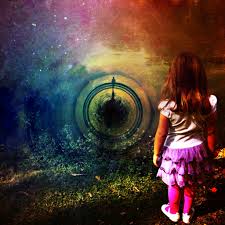










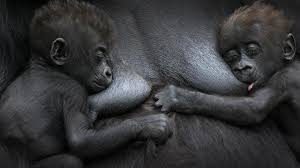
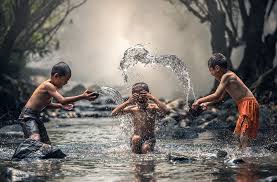



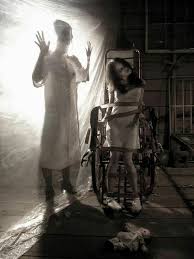





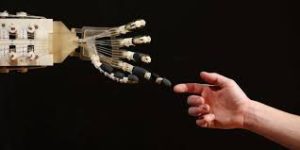









Does your blog have a contact page? I’m having trouble locating it but, I’d like to shoot you an email.
I’ve got some ideas for your blog you might be interested
in hearing. Either way, great site and I look forward to seeing it develop over time.
Masz ochotę na Sex w Katowicach i nie wiesz gdzie znaleźć odpowiednią kobietę? Odwiedź naszą stronę już teraz.